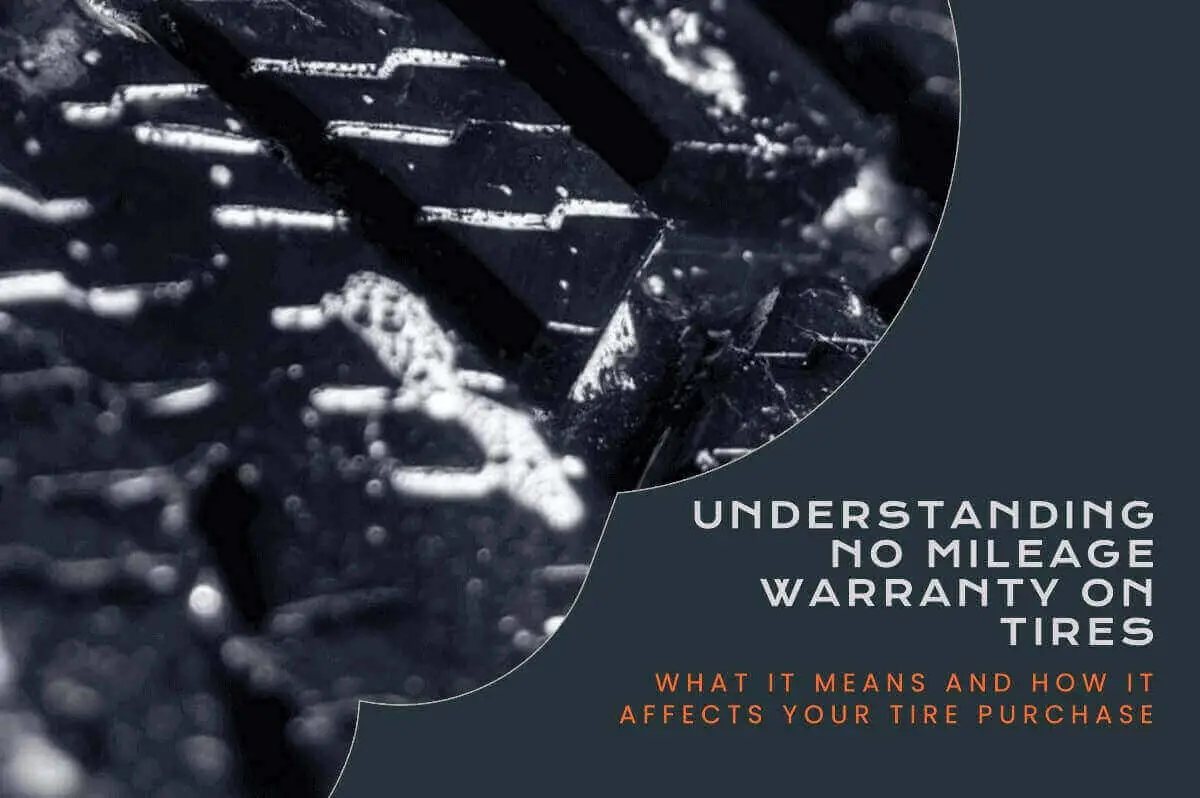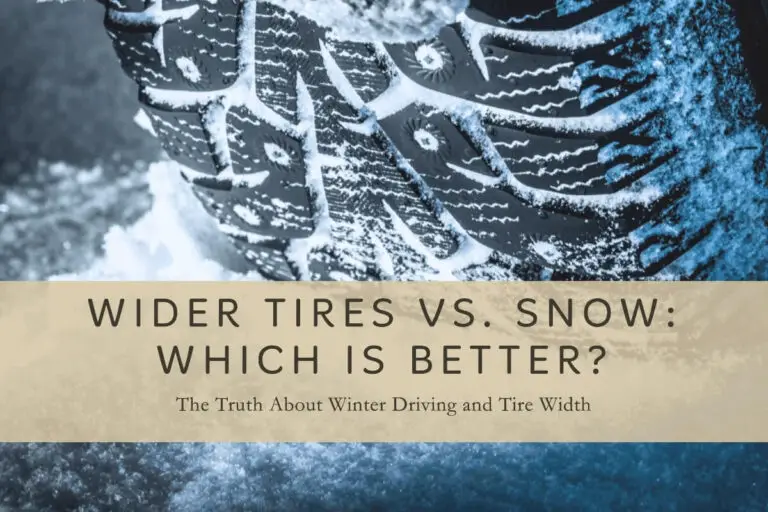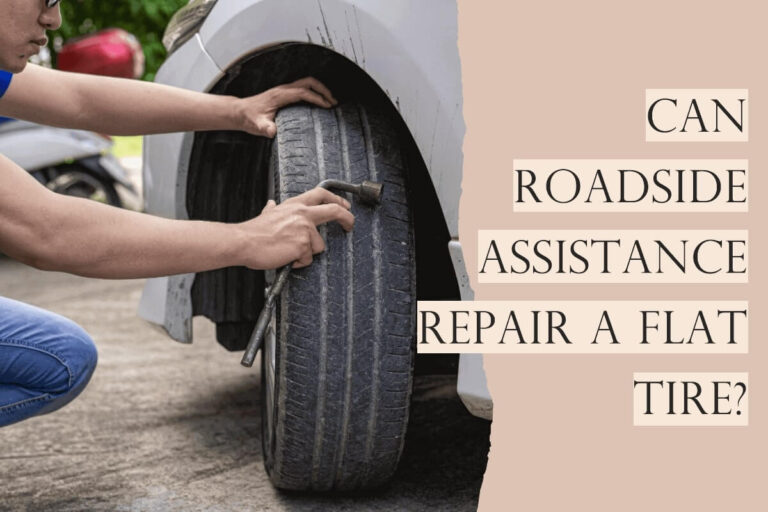Have you ever come across the question, “What does no mileage warranty on tires mean and wondered what it means? It can be confusing. Well, fear not because today we’ll shed some light on this topic and break it down for you.
When it comes to tires, there are several factors to consider, such as size, type, and brand. One essential aspect that often confuses buyers is the concept of a mileage warranty. Many tires come with a mileage warranty, offering consumers security and value.
In this beginner’s guide, we will explore the meaning of What does no mileage warranty on tires means, the reasons behind it, and whether it’s suitable for your needs. So, whether you’re a car enthusiast or just someone looking to understand their options better before making a purchase, buckle up and dive into the fascinating world of tire warranties!
Understanding Tire Mileage Warranties
Before diving into what “No Mileage Warranty” means, let’s first understand a tire mileage warranty. A mileage warranty is a guarantee provided by tire manufacturers that indicates the miles their tires are expected to last under usual driving conditions. For example, a tire with a 50,000-mile warranty is expected to perform optimally for up to 50,000 miles.
What Does No Mileage Warranty on Tires Mean
When purchasing a new set of tires, one of the factors to consider is whether they come with a mileage warranty. However, some tires are sold without any mileage warranty at all. So, what does no mileage warranty on tires mean? The manufacturer cannot guarantee how many miles you can drive on those tires before they wear out or become unsafe.
Tires with no mileage warranty usually fall into performance-oriented and budget-friendly options. Performance-oriented tires are designed for high-performance vehicles and are optimized for speed, cornering stability, and responsiveness. These types of tires prioritize grip and handling over longevity.
On the other hand, budget-friendly tires are often made using less expensive materials and manufacturing processes to keep costs low. While these may provide adequate traction in normal conditions, higher-end models might only last briefly.
The Benefits of Mileage Warranties
Mileage warranties offer several advantages for tire buyers. They provide confidence in the product’s quality and longevity, allowing consumers to make informed decisions based on their driving habits and needs. Additionally, mileage warranties can help protect buyers from premature tire wear or manufacturing defects, as the manufacturer is accountable for the specified mileage.
Reasons for “No Mileage Warranty”
While mileage warranties are prevalent in the tire industry, there are instances where tires may not come with such guarantees. Several factors contribute to answering the question of What Does No Mileage Warranty on Tires Means:
1. Change in Tire Design
In some cases, tire manufacturers may introduce new tire models or designs that are innovative and improved but have yet to be tested for a sufficient duration to provide an accurate mileage warranty. It is common when introducing cutting-edge tire technology.
2. Specialty Tires
Certain tires are designed for specific purposes, such as racing, off-roading, or extreme weather conditions. These specialty tires may not come with mileage warranties because they focus on providing exceptional performance and features rather than longevity.
3. Low-Cost Tires
Budget-friendly tires often need more mileage warranties as they may use less durable materials and have a shorter lifespan than premium tires. These tires suit drivers seeking an economical option but may compromise on long-lasting performance.
Is “No Mileage Warranty” a Concern?
If you come across tires labeled as “No Mileage Warranty,” you might be worried about the lack of assurance and potential risks. However, it’s essential to consider the following factors:
1. Performance and Safety
Tires without a mileage warranty can still offer excellent performance and safety. Modern tire manufacturing processes and technological advancements ensure that even non-warrantied tires are reliable and meet safety standards.
2. Intended Use
Consider how you plan to use your vehicle and the tires. If you need specialty tires or are looking for a cost-effective option for a short-term need, the absence of a mileage warranty might be a minor concern.
3. Customer Reviews and Ratings
Research customer reviews and ratings for the specific tire model you are considering. Real-world experiences from other drivers can provide valuable insights into the tire’s performance and longevity.
Factors to Consider when Choosing “No Mileage Warranty” Tires
If you are leaning towards purchasing tires without a mileage warranty, there are some essential factors to keep in mind:
1. Tire Type
Determine the type of tire that best suits your needs – all-season, summer, winter, or specialty tires. Each class offers distinct features and performance characteristics.
2. Brand Reputation
Choose tires from reputable brands with a history of producing reliable products. Established brands often have rigorous quality control measures in place.
3. Tread Pattern and Depth
Consider the tire’s tread pattern and depth, as these play a crucial role in traction, handling, and water dispersion.
4. Load Capacity and Speed Rating
Ensure your chosen tires handle your vehicle’s load capacity and speed requirements.
Maintenance and Care
Regardless of whether your tires have a mileage warranty, proper maintenance and care can significantly impact their lifespan and performance:
1. Regular Inspections
Perform regular visual inspections to check for signs of wear, damage, or uneven tread wear.
2. Tire Rotation
Regularly rotate your tires to promote even wear and extend their life.
3. Proper Inflation
Maintain the recommended tire pressure to optimize fuel efficiency and tire performance.
4. Wheel Alignment
Get your vehicle’s wheel alignment checked and adjusted regularly to prevent premature tire wear.
Conclusion
What does no mileage warranty on tires mean that the tire manufacturer does not provide any warranty coverage based on the miles driven? This type of warranty typically only covers defects in materials and workmanship, and consumers need to understand that regular maintenance and care are essential factors in maximizing the lifespan and performance of their tires.
It may be due to tire design, intended usage, or cost-saving measures. However, it is crucial to consider your specific driving needs and the reputation of the tire brand before making a decision. Remember to conduct thorough research, read customer reviews, and consult with experts if you have any uncertainties.
With the proper knowledge and careful consideration, you can find the perfect set of tires to meet your requirements and ensure a safe and enjoyable driving experience.
Frequently Asked Questions (FAQs)
Do all tires have a mileage warranty?
No, not all tires come with a mileage warranty. Some tires may have it as a feature, but it’s only universal across some tire brands and models.
How long can tires last mileage?
The mileage a tire can last depends on various factors, including driving habits, road conditions, tire maintenance, and tire quality. On average, tires can last anywhere from 50,000 to 60,000 miles.
What does the mileage warranty on tires cover?
The mileage warranty on tires covers premature wear and guarantees a specified number of miles the tire should last before needing replacement. If the tires wear out prematurely within the specified mileage, the manufacturer may offer a pro-rated replacement or credit towards new tires.
What does tire mileage mean?
Tire mileage refers to the total distance a tire can travel before its tread wears down to a point where it affects performance and safety. It indicates how much life is left in the tire before it needs replacement.
How do you check the mileage on tires?
To check the tire mileage, inspect the tread wear indicators (small rubber bars) at the bottom of the tire’s tread grooves. If these indicators are flush with the tread surface, the tire has reached the end of its mileage life. Alternatively, you can use a tread depth gauge to measure the tire tread depth and estimate its remaining life. Regularly checking tire pressure and alignment can also maximize tire mileage.
Do tires wear faster at higher speeds?
Yes, tires wear faster at higher speeds. Increased speed increases friction and heat generation, causing the tire tread to wear down more quickly.








